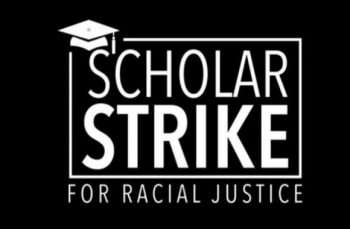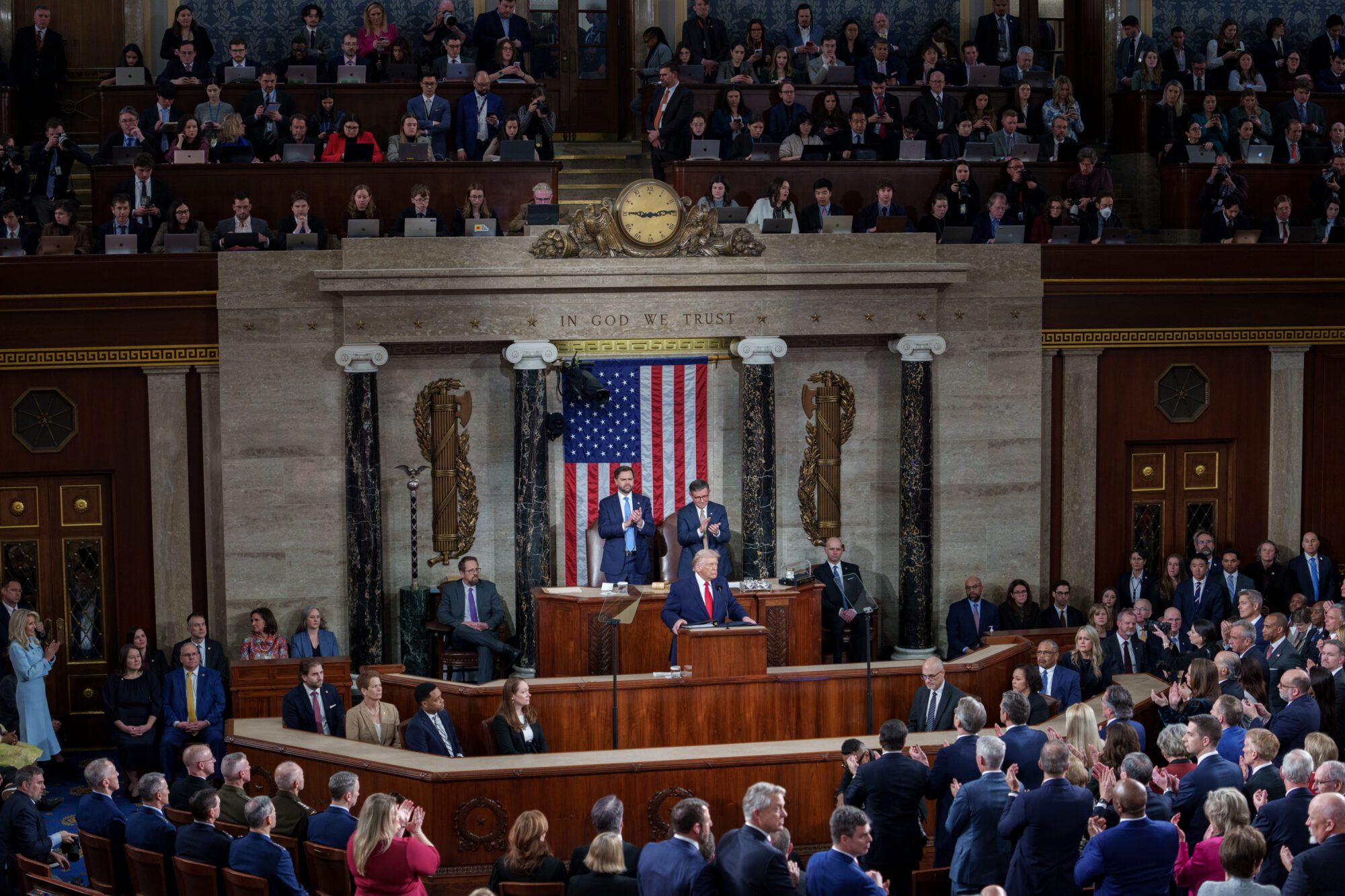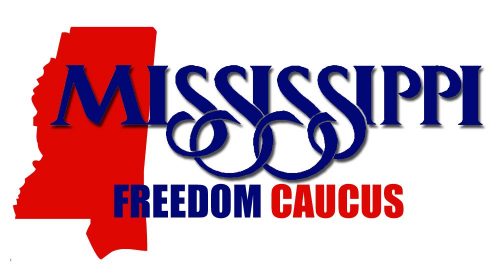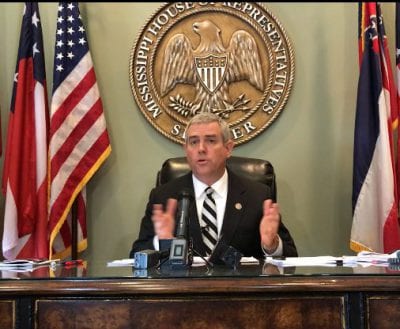
Last week, it was made public that State Auditor Shad White was investigating an Ole Miss sociology professor who he says improperly participated in a two-day strike.
White cited Professor James Thomas’ “work stoppage” in participating in the strike, and explained in a letter to Chancellor Glenn Boyce that Mississippi code bans strikes or any other activities that create a work stoppage.

Auditor White instructed Boyce and Ole Miss to withhold any money Thomas made on the days he was not working while participating in the strike, and also instructed the university to pursue termination of the professor.
<<READ MORE: Auditor calls for termination of professor who participated in two-day strike>>
Now, over 40 professors are calling on University of Mississippi Provost Noel Wilkin to stand with Thomas, saying he “has endured harassment and threat of job loss as a result of a concerted effort by state level politicians and the public.”
The letter shown below was sent to Ole Miss Provost Wilkin on Monday.
###
September 21, 2020
NOEL E. WILKIN
Provost/VC for Academic Affairs
University of Mississippi
University, MS 38677
nwilkin@olemiss.edu
Dear Provost Wilkin,
We, the undersigned members of the professoriate in Mississippi and beyond, urge that you immediately and publicly express support for the besieged faculty member, J. M. Thomas. We urge you, as institutional leader of the Faculty of University of Mississippi, to support the principle of academic freedom, helping to articulate to the public an understanding of Dr. Thomas’ action as a direct expression of academic freedom and as an expression of the human values in the University’s statements of mission and philosophy.
To begin, we believe that any conduct of Dr. Thomas that falls within his profession as a professor is the purview of his colleagues, department chair, and dean. If his experiences are like the rest of us, professors give countless uncompensated hours and days to our institution, discipline, and the public.
Professor Thomas has exercised his constitutional right of freedom of speech in acknowledgement and support of ScholarStrike, a national action to voice opposition to police violence against African Americans. Dr. Thomas’ participation in ScholarStrike constituted, as he has suggested, his teaching activity on September 8-9, 2020, declaring his support of humanistic values that are at the heart of the academic enterprise. Rather than being threatened by forces of the State for his action, he should be honored for helping to advance the values espoused in the University’s own Mission Statement, including enriching opportunities outside the classroom and a sense of global responsibility.
The executive director of ACLU-MS is quoted by AP as saying that Dr. Thomas “was not demanding improvements in his own work conditions but was trying to draw attention to other issues” and therefore his action was well within his rights as a citizen. Furthermore, we assert that if Dr. Thomas has not violated anything within the University of Mississippi faculty handbook, there is no merit to what his critics have to say about his recent activities. His style of community activism may not be the approach some of us would choose to use. On the other hand, tenured professors are protected from the whims and tastes of the public or individual politicians.
We realize that many politicians and members of the public have found professors to be easy targets in these polarized times. One speaker said before a national audience that professors “don’t have pride in our country and because they no longer ask what can I do for my country, only what the country should be doing for them, they don’t have pride in themselves.” This antipathy towards higher education is mirrored at the state level. Given recent negative comments about professors in American society, we find it particularly worrisome that many in the public and politics know so little about academia, what a professor is, or how tenure works besides what they may read in a few media accounts and on social networking sites. Sadly, Dr. Thomas has become fodder for such sentiments.
We view higher education as a cornerstone ideal in a well-functioning democracy. Dr. Thomas practices his discipline faithfully by recognizing that personal issues are linked to larger social forces. The social sciences and humanities tradition that many professors like him follow centers on critical thinking and sound research and teaching. That tradition also involves exposing social injustice and providing solutions. Indeed, this is the point that Martin Luther King made when he argued that social sciences should be the “molders of consensus.” Lastly, the ethics we abide by as learned members of our disciplines often requires us to give voice to empower those we study and teach, and the ways we practice community building. Like Dr. Thomas, we the undersigned, are guided by those ideals.
We, the undersigned, urge you to stand publicly with Dr. Thomas in exercising his disciplinary values and constitutional right to free speech. Your public support is urgently needed.
Respectfully,
Rachel Allison, PhD
Ted Atkinson, PhD
DeeDee Baldwin, MILS
Mark A. Bernhardt, PhD
James E. Bowley, PhD
Gwendolyn Bussa, PhD
Shalyn Claggett, PhD
J. Janice Coleman, PhD
Adele Crudden, PhD
Peter DeGrabiele, PhD
Lara Dodds, PhD
Louwanda Evans, PhD
Kristen Brown Golden, PhD
Max Grivno, PhD
Joshua S. Haynes, PhD
Margaret A. Hagerman, PhD
Alexandra Hui, PhD
Joō Fumiko, PHD
Kimberly Kelly, PhD
Thomas M. Kersen, PhD
Braden Leap, PhD
Sharon Lobert, PhD
Robert Luckett, PhD
Kelly Marsh, PhD
Natalie Maynor, PhD
Moses Newsome, PhD
Keith Moser, PhD
Joanne Olson, PhD
Bonnie Carr O’Neill, PhD
Sol Palez, PhD
Seth F. Oppenheimer, PhD
Marty G. Price, PhD
Judith Ridner, PhD
Savina O. Schoenhofer, PhD
Nathan R. Shrader, PhD
Andrea Spain, PhD
Ashley Vancil-Leap, PhD
Eric Vivier, PhD
Brian Williams, PhD
Sarah Sylvester Williams, PhD
Erin Graff Zivin, PhD











